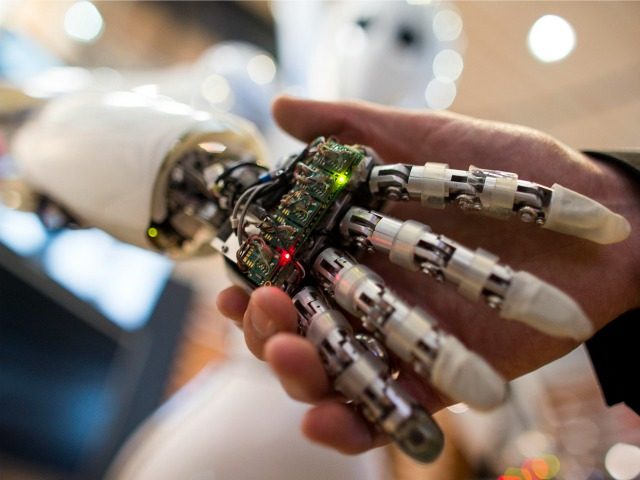Up to 250,000 public sector workers in the UK could be replaced by robots over the next 15 years as the development of artificial intelligence surges, according to a recent study.
The study, undertaken by the center-right think tank Reform, found that in Britain up to 250,000 government employees, including those with jobs in government, healthcare, and transportation, could be replaced by 2030, saving taxpayers a sizeable £4 billion a year.
It found that robots and/or artificial intelligence will eventually outperform humans in a range of public sector jobs, becoming more efficient with data collection and administrative tasks, but also healthcare roles such as providing simple diagnoses to patients and surgical procedures.
The report is part of an effort to encourage the government to embrace a more flexible economic model, where workers take on more variable roles to match supply as and when it is needed.
In a press release, Reform said that the study shows that “public services can become the next Uber, using the gig economy to employ locum doctors and supply teachers.”
It argues that around 20 percent of public workers will retain their roles due to their “cognitive” nature, where they will use “data to identify patterns – improving decision-making and allocating workers most efficiently.”
“The NHS, for example, can focus on the highest risk patients, reducing unnecessary hospital admissions. UK police and other emergency services are already using data to predict areas of greatest risk from burglary and fire,” it continues.
The findings are likely to infuriate labor unions, who have long campaigned against the increase in automated technologies in fear that they will replace workers and leave millions unemployed.
In December, Nobel-Prize winning economist Angus Deaton said that the rise in robotic technologies presented a far greater threat to jobs than globalization.
The report’s co-author, Alexander Hitchcock, argued that “such a rapid advance in the use of technology may seem controversial, and any job losses must be handled sensitively. But the result would be public services that are better, safer, smarter and more affordable.”

COMMENTS
Please let us know if you're having issues with commenting.